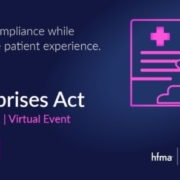Medicare, the OIG, and many commercial payers are using the power of technology to perform data analytics on your claims data to identify provider outliers and target their auditing efforts.
Are you proactively and routinely performing data mining and analytics on all your claims data to find those with the highest potential risk? If you are only looking at a small random sample of claims, it may be time to rethink your current auditing methodology.
Join Panacea’s experts on Thursday, August 11 at 10am PT | 1pm ET for an informative 45-minute webinar to see first-hand how one of the leading rules-based AI auditing systems, CLAIMSauditor®, can assist providers to stay a step ahead of payer and other external auditors to find records that have the highest probability for being under-coded, over-coded, under-billed and over-billed, non-compliant, or at risk for having missing or lost revenue or charges.
You’ll learn how to:
- Access, view, edit or create from scratch simple or complex rules to swiftly data mine thousands of accounts
- Create custom audit configurations containing dozens or hundreds of AI Rules
- Track audit results with reason for change statistics at the record and code level and produce analytics by code, coder, payer, physician, payer, etc.
- Assign reviewer and supervisor level approval privilege
- Develop customized training programs






